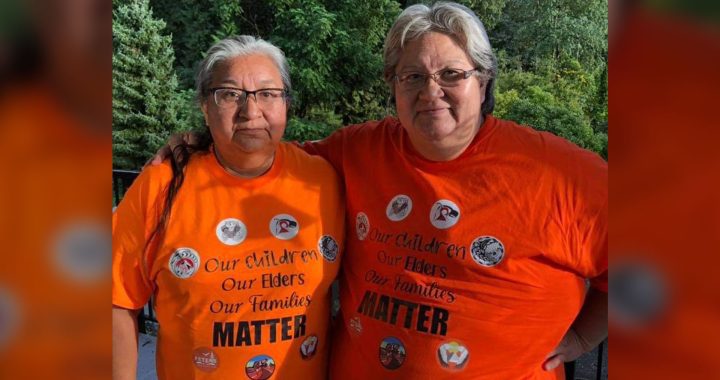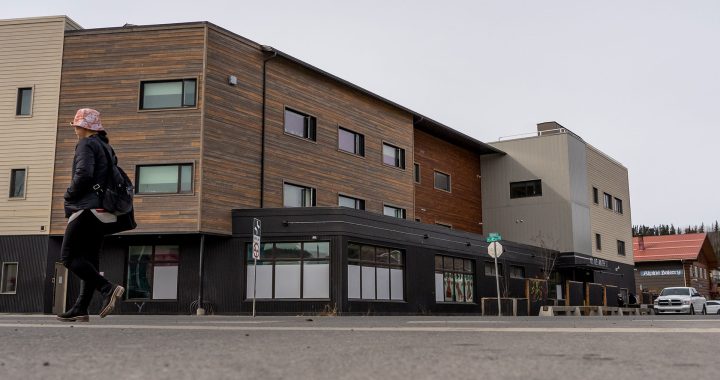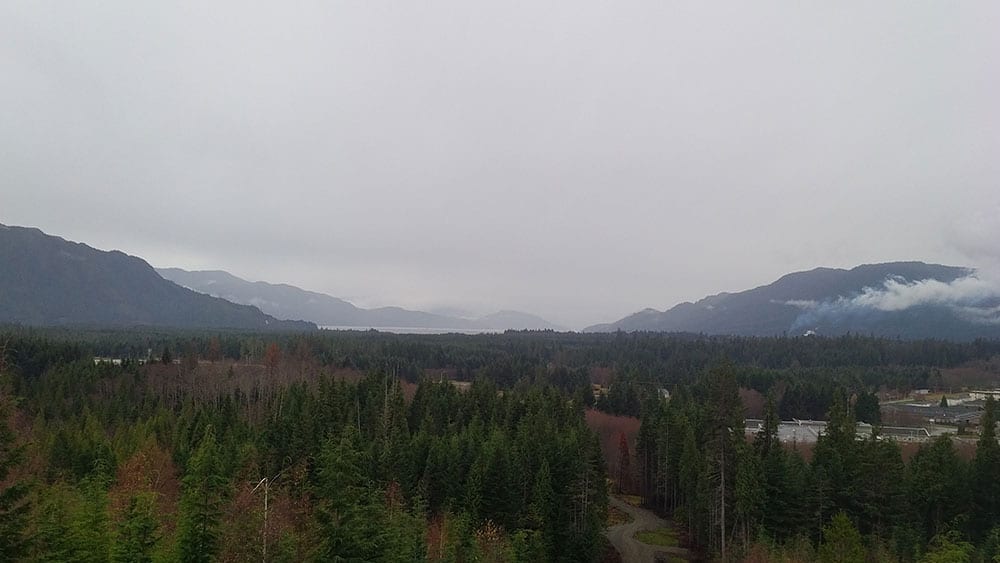
They’re called “man camps” – temporary villages of male workers that accompany mining, oil and gas development.
They’ve long been considered a threat to area women – wherever they exist.
About 10,000 workers are expected to flood into Kitimat, B.C., over the life of the Coastal GasLink pipeline project, which will more than double the tiny community’s population.
Area politicians like Jessica McCallum-Miller know the influx can boost local economies but also spike crime.
“I’ve researched the subject and heard what happened with other work camps in northern B.C,” she said in an interview with APTN News at the Kermode Friendship Centre in downtown Terrace.
McCallum-Miller is not alone – organizations such as Amnesty International, the Firelight Group and those who work with exploited women and girls say drug trafficking, sexual assault and murder have been linked to temporary work camps.

“It’s one of the reasons I moved back to Terrace last year,” said long-time activist Gladys Radek.
“It’s a tough community with some complacency towards missing and murdered Indigenous women and girls (MMIWG).”
Radek joined the anti-violence movement when her niece, Tamara Chipman, disappeared in 2005 along Highway 16, which is also known as the ‘Highway of Tears’ and connects the towns in northern B.C.
Dozens of MMIWG cases remain unsolved and Radek worries they will further fall to the bottom of the pile as police deal with new crimes.
Already LNG and its construction partners have applied for permits to build at least four temporary work camps along the 670-kilometre pipeline route.
Some will hold thousands of workers and the closest communities are First Nations.

At 25, Jessica McCallum-Miller is the youngest – and first Indigenous councillor – for Terrace.
Marc Snelling, the father of two young daughters, is also new to Terrace.
He said he’s heard more about what the development is doing for property values than what the risks are for women and girls.
“There’s a Gold Rush mentality,” he said. “Excitement about the money coming into the community.
“But we have people with addictions and mental health issues that are struggling with the lack of services now.”
Firelight, an Indigenous-led research company, analysed the effects of industrial camps on remote First Nations in different parts of Canada.
It found women and children are subject to what it calls “a risk pile up” combined with existing socio-economic and historical factors.
It said victims reported increased rates of sexual assault, addictions, sexually transmitted infections and family violence when a construction camp operated nearby.
“Data from local RCMP detachments shows a 38 per cent increase in sexual assaults during the first year of the construction phase of an industrial project, as well as an increase in sex work,” Firelight said.
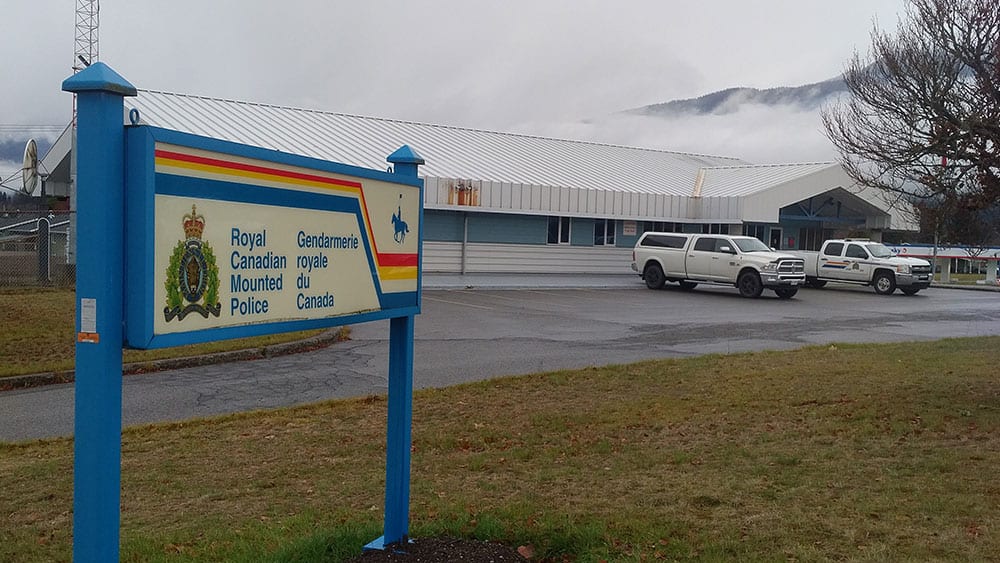
RCMP detachment in Kitimat, B.C.
Twenty First Nations gave approval for construction on their territories of the pipeline that will carry natural gas from northeastern B.C. to the Port of Kitimat in exchange for funds and jobs.
Pierce, a company spokeswoman, said LNG is aware of the crime associated with camp workers and has taken steps to change the culture.
She said every employee will sign a code of conduct and be sent home for violating it.
“From the beginning, we have wanted to ensure that any of the camps that we build or we occupy is going to be a place that is safe for women.”
Encouraging Indigenous women to seek careers in the trades and live in camp is also a goal of LNG, she added.
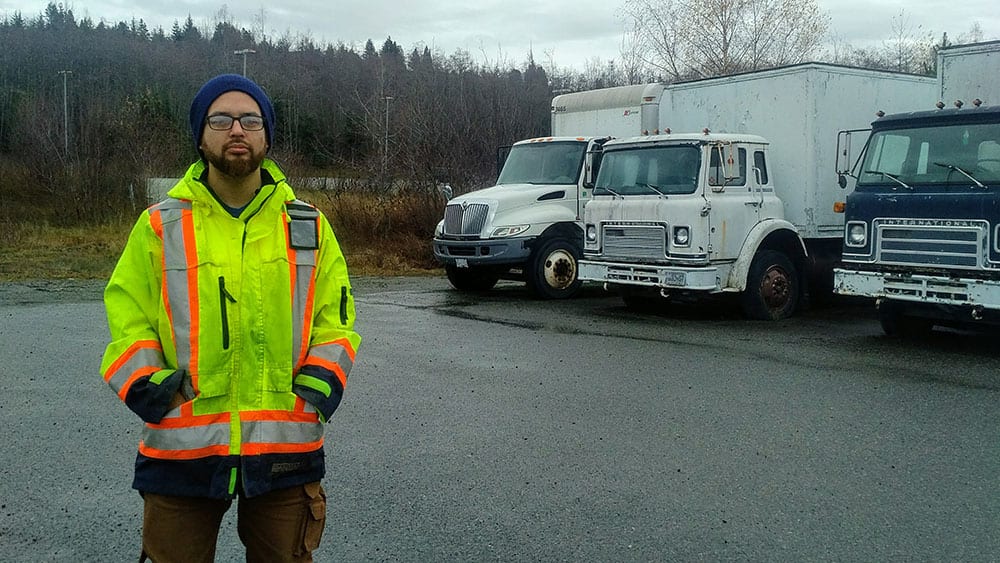
Edmund Grant hopes for long-term work on the project.
“We want to make sure that it’s safe, we want to make sure that it’s clean, we want to make sure that it’s a place where everybody is comfortable no matter what your gender, race and ethnicity.”
Edmund Grant of the Haisla Nation doesn’t have to live in a camp while he works on the project.
He lives in the band’s nearby Kitamaat Village, where he grew up with six sisters.
He’s a labourer with a sub-contractor to pipeline preparation now but hopes to become an apprentice.
Grant said he’s heard gossip about bad things involving camps and other communities and won’t stay silent here.
Even if it costs him his job.
“This is my home, my community,” he said.







